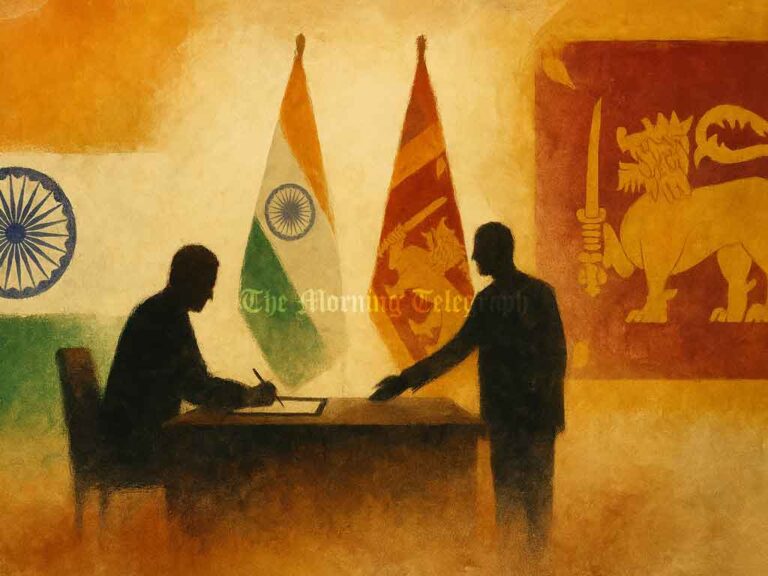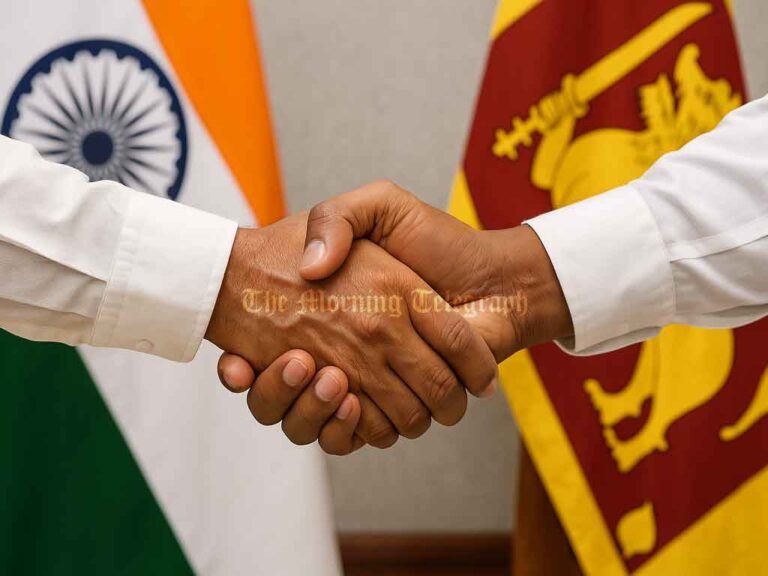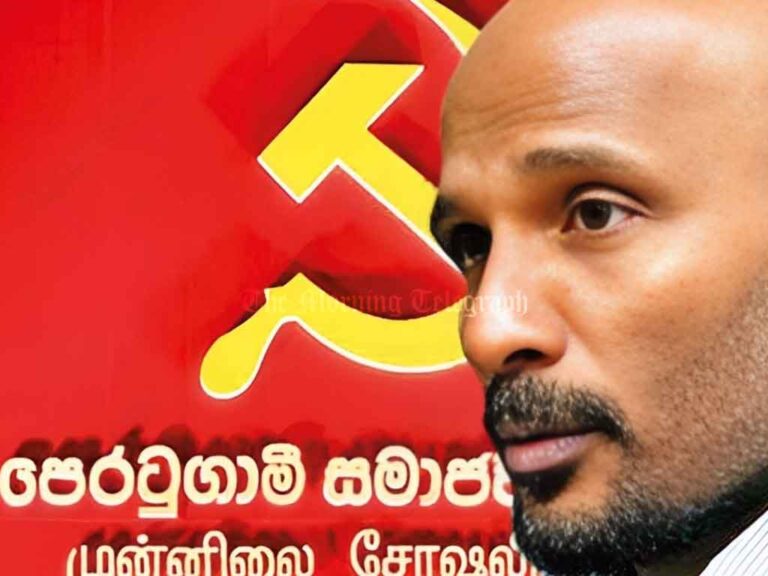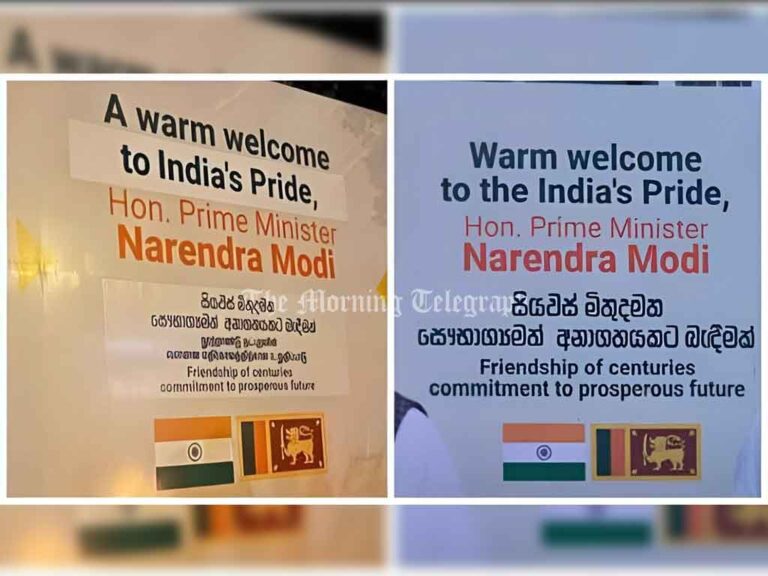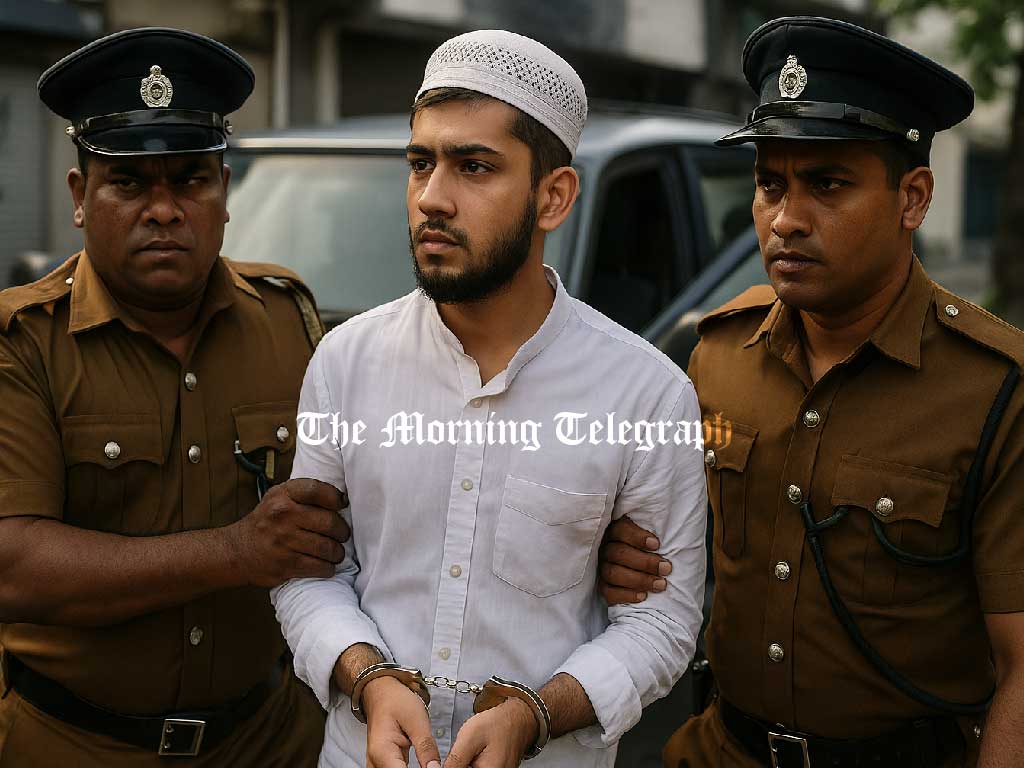
- Note that the image above was created by AI.
Police have recently arrested and detained a youth under the Prevention of Terrorism Act (PTA). The person arrested is a 22-year-old resident of Nittambuwa named Mohamed Rushdie.
The youth was arrested on March 22. According to Police Media Spokesperson, Senior Superintendent of Police Gunathilaka Manatunga, the arrest was made based on information that emerged during an investigation into the pasting of a sticker that read “F*** Israel.”
“We looked into who he was because of the stickers. When we looked into it, we found that he had converted to extremist ideologies. We didn’t arrest him immediately. He had pasted stickers in other places in Sri Lanka as well. We were concerned about him because of that. When we investigated further, we found more details, and that’s when we arrested him. Don’t think he was arrested simply for pasting stickers—we began looking into him because of that,” the police spokesperson said.
He also stated that the young man had been presented before the Ulema Council.
“This person was also presented to the Ulema Council. The Ulema Council actually said that he exhibited behaviors that went beyond those of an ordinary Muslim and recommended that he be rehabilitated,” the spokesperson added.
It has been confirmed that Mohamed Rushdie is currently being held at the Terrorism Investigation Division under a 90-day detention order issued under the Prevention of Terrorism Act.
A family member, whose identity is being protected, shared insights into the young man’s actions. According to the family member, Rushdie had pasted a sticker on a garbage bin at his workplace to express his grief over the killing of civilians due to Israeli attacks on Palestine. He had informed his parents about the sticker.
“He had said to his parents, ‘I feel very sad and pained when I see the bodies of small children. I put a sticker on it.’ His parents had told him, ‘Don’t do such unnecessary things. Go to mosque and pray during the month of fasting. That is the best thing to do,’” the relative explained.
After this incident, Rushdie continued going to work as usual. A few days later, he was arrested by the police while on his way to work.
“After he was arrested, the police called home and said, ‘Your son has been arrested. We need to record a statement. Please come in to give a statement, and then he will be released.’ The parents left. Then a jeep with a group of officers came to the house and thoroughly searched the room where Rushdie was staying. The officers said, ‘He will be released in a week. He’s only being held on suspicion,’ and then they left,” the family member said.
Leader of the House and Minister Bimal Ratnayake, who is also a member of the Sri Lanka Palestine Solidarity Committee, commented in Parliament back in January, “Regarding the Prevention of Terrorism Act, it must be said that it is not our policy or ambition. However, until a new law is drafted, existing laws must be used carefully. This is necessary until the government enacts new legislation.”
The National People’s Power (NPP) movement had promised during the election campaign to repeal the Prevention of Terrorism Act if they came into power.
On March 30, the Police Media Division issued a statement about the arrest of Mohamed Rushdie. According to the statement, false information about the arrest was being circulated on certain social media platforms.
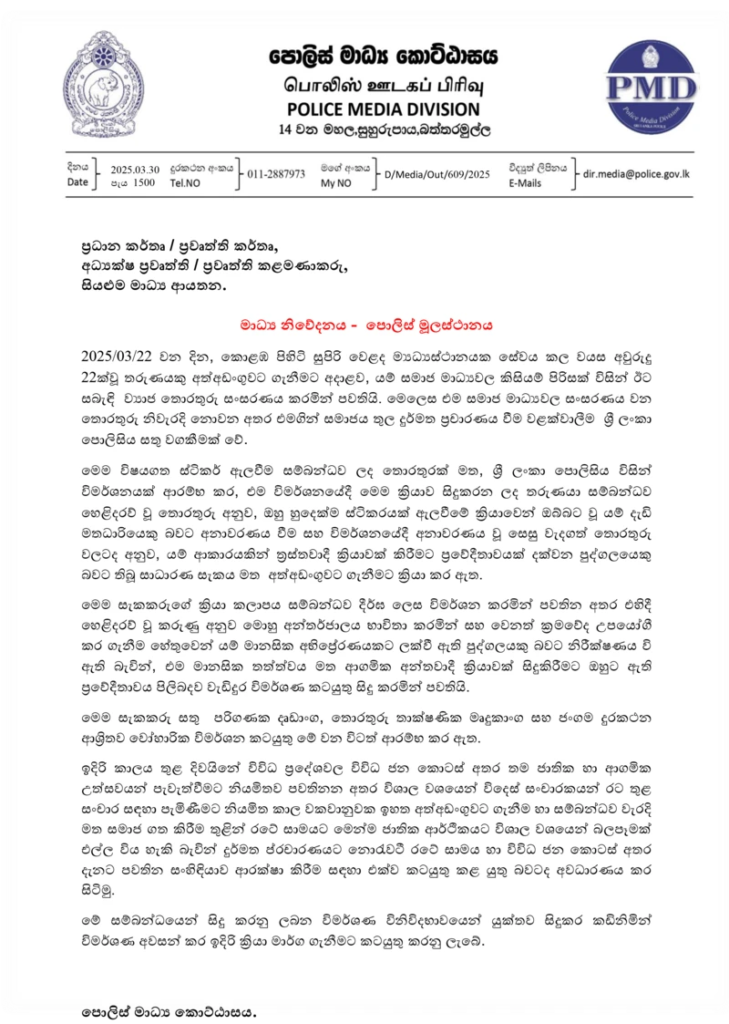
The statement mentioned that an extensive investigation was being carried out into Rushdie’s actions and that it had been observed that he might have been psychologically influenced by material found online and through other channels. Authorities are investigating whether he is at risk of committing a religiously motivated extremist act as a result of his mental state.
The Police Media Division further stated that forensic investigations were underway into the suspect’s computer hardware, software, and mobile phone.
It also mentioned that national and religious festivals are approaching and will be celebrated by various communities across the country, while a significant number of foreign tourists are expected to visit. Therefore, spreading misinformation about this arrest could seriously impact national peace and the country’s economy. The statement urged all parties to act responsibly and protect communal harmony, avoiding false propaganda. It also promised that the investigation would be conducted transparently and completed swiftly, with further action taken accordingly.
Meanwhile, human rights activist and alternative media editor Sampath Samarakoon expressed serious concern about Rushdie’s arrest under the PTA. He described the arrest as an example of how the law is applied arbitrarily.
Samarakoon noted that since the enactment of the PTA, non-Sinhala Muslims and Tamils have been disproportionately affected.
“This arrest further proves that this law is being used to suppress non-Sinhala Tamils and Muslims,” he said.
He also pointed out the contradiction in the NPP-led government, which has been holding rallies calling for the abolition of the PTA, yet now uses it to justify arrests like Rushdie’s.
According to Samarakoon, Rushdie’s arrest marks a dangerous turn toward suppressing freedom of expression in the country.
“If someone cannot express their opinion about another country or an issue in a fair and peaceful way—even if it’s by pasting a sticker—then I believe that this country is heading toward becoming like Russia or China,” he warned.
He also questioned the timing and transparency of the police’s actions and statements.
“According to the information we have, this young man has no criminal history. Let’s assume that what the police spokesperson said is true. But the press release doesn’t say that. It says he was arrested on the 22nd. But only after pressure built up on social media did they issue the press release, and that was just yesterday. What does that tell us?” he asked.
He further questioned why, if a crime had indeed been committed, the young man was not being prosecuted under regular criminal law instead of the PTA.
“Before President Anura Kumara Dissanayake was elected, he promised to abolish the PTA. Now it seems like that promise is being reconsidered. It appears that the government, like many before it, wants to keep a repressive law like this in place—perhaps due to some kind of pressure or influence. That desire is dangerous,” Samarakoon concluded.

